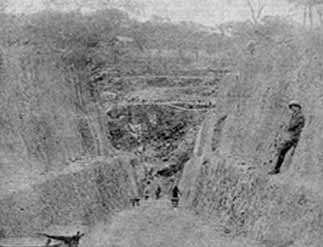America’s interest in the Congo—and, specifically, in the resource-rich south-eastern province of Katanga—was one of the best-kept secrets of the second world war. Beneath its verdant soil lay a prize that the Americans believed held the key to victory…The Germans, they feared, might be after it, too: uranium. Congo was by far the richest source of it in the world. As the architects of America’s nuclear programme (the “Manhattan Project”) knew, uranium was the atom bomb’s essential ingredient. But almost everybody else was kept entirely in the dark, including the spies sent to Africa to find out if the heavy metal was being smuggled out of the Congo into Nazi Germany.
The men—and one woman—charged with protecting America’s monopoly of Congolese uranium worked for the Office of Strategic Services (OSS), an organisation set up by President Franklin Roosevelt as the wartime intelligence agency, and the precursor to what in peacetime became the Central Intelligence Agency (CIA).
Shortly after the war ended the focus of America’s nuclear rivalry shifted. In 1949 the Soviet Union tested its own nuclear bomb, launching a new era for America, Congo and the rest of the African continent. Huge sums were pumped into Katanga to facilitate uranium export and to prop up Belgian defences. After Congo became independent in 1960 the CIA lingered there for decades to keep uranium and, later, other minerals out of Russian hands. Much of Congo’s tragic late-20th-century history is attributable to these machinations…. A little-known story, but one with a terribly familiar ring—and ultimately devastating consequences.
Excerpt from Congo’s uranium: Rich pickings, Economist, Aug. 27, 2016 (Book review of
Spies in the Congo: America’s Atomic Mission in World War II. By Susan Williams, 2017)

